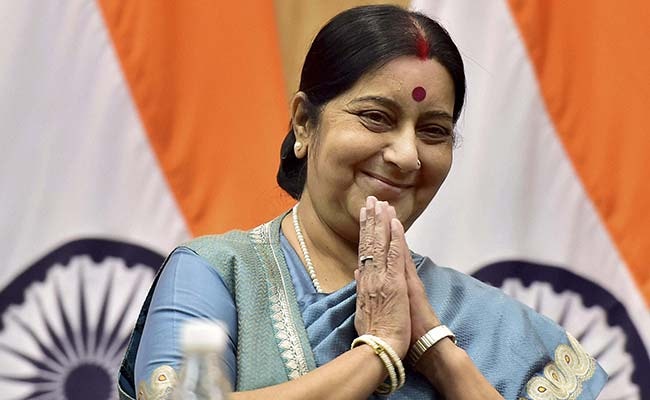
External Affairs Minister Sushma Swaraj and Defence Minister Nirmala Sitharaman will hold talks with their American counterparts Mike Pompeo and James Mattis here next week which experts here hope will help change the current narrative surrounding the bilateral relationship amid economic and trade issues.
Mr Pompeo and Mr Mattis will host Ms Swaraj and Ms Sitharaman in Washington DC for the maiden India-US 2+2 Dialogue, the format of which was agreed between the two sides during the White House meeting between Prime Minister Narendra Modi and US President Donald Trump in June last year.
The July 6 dialogue comes at a time of heightened trade tensions between the two countries.
Last week, India announced a plan to raise tariffs on 29 US imports in retaliation for the US' decision to include India in its list of countries covered by higher steel and aluminum duties.
During their engagement, the four Cabinet ministers are expected to spend time on discussing strategic issues in particular those related to defence, the Indo-Pacific region and the South Asia policy of the Trump administration, in which India has a key role to play, officials here said.
This is going to be the biggest engagement of the year between the two countries.
"It's an enormously positive signal that the 2+2 dialogue is continuing this year. It will provide a good opportunity to change the current narrative surrounding the bilateral relationship," Anish Goel, a senior fellow at New America and a former senior director at the White House's National Security Council told news agency PTI.
"The past few months, we have been stuck on sanctions, tariffs, and other economic and trade issues where the United States and India don't see eye-to-eye. This dialogue will allow them to focus on the strategic issues that are really the backbone of the partnership," Mr Goel said in response to a question.
Mr Goel expects that key issues such as counter-terrorism, cyber security, defence cooperation, and regional security will dominate the dialogue.
Alyssa Ayres from the Council on Foreign Relations and a former State Department official under the previous Obama administration anticipates that discussions about shared concerns in the Indo-Pacific and fresh ideas about what India and the United States can do together-should take centre-stage during their talks.
"But I can't help adding that the deteriorating tenor of the economic relationship has made me worried for the first time in years," Ms Ayres told news agency PTI.
"So I hope this backdrop does not overshadow the important and urgent cooperation on strategic ties," Ms Ayres said.
Noting that India-US relations enjoyed relative stability in the first year of the Trump administration, Rick Rossow from the Center for Strategic and International Studies (CSIS) observed that negativity now dominates the landscape, particularly on economic issues.
"The 2+2 dialogue must find ways to tangibly move our security partnership forward, and energize our security leaders to intervene in our declining economic relationship before we suffer irreparable harm," Mr Rossow said.
"Our leaders must also set in motion a strategy to ensure that new and revisited sanctions programs against Russia and Iran don't disrupt progress in our emerging relationship," Mr Rossow said.
He was referring to Countering America's Adversaries Through Sanctions Act, signed into law in August 2017 and went into effect in January this year, which mandates the Trump administration to punish entities engaging in significant transaction with the defence or intelligence sectors of Russia.
India, which does business both with Russia, is likely to be hit.
Track Latest News Live on NDTV.com and get news updates from India and around the world

